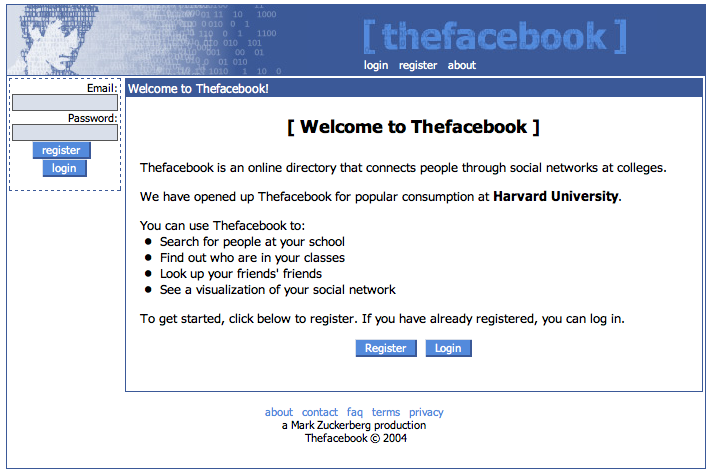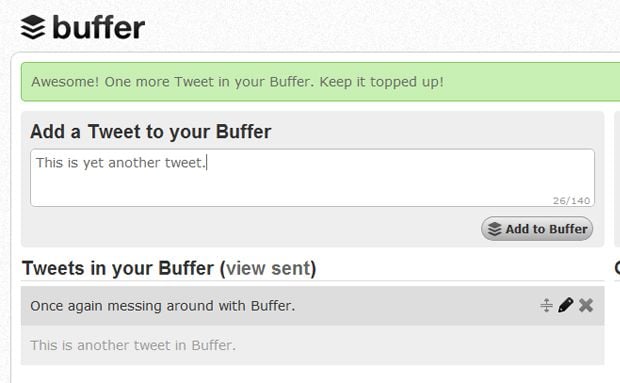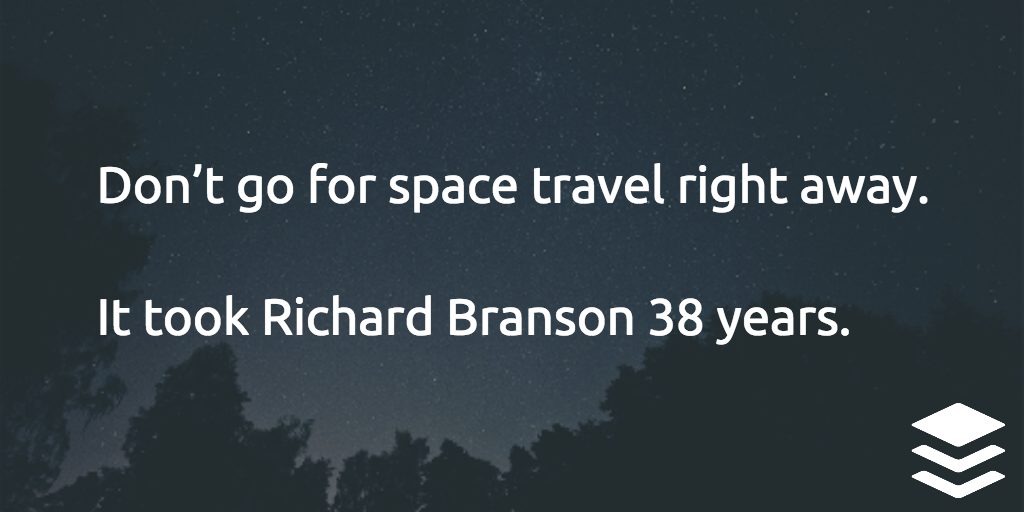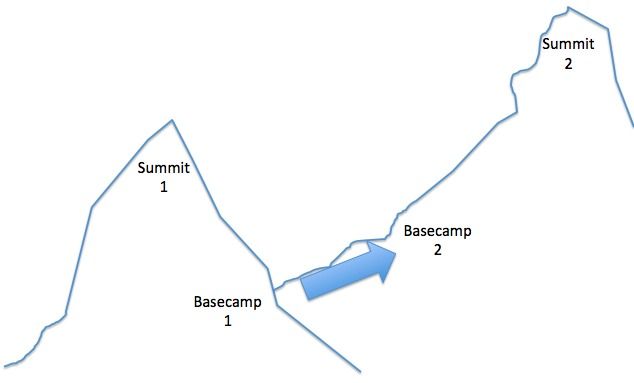While building Buffer, there have been times when things have started to go a little crazy.
It might be being featured in a big blog, seeing lots of tweets about us, or noticing a big influx of signups or upgrades. When this happens, it is very easy for my thoughts to drift off and to start thinking of the big-picture possibilities for us, long into the future.
It may be healthy to be ambitious, but often these thoughts occupy more time than they should and stop us doing the real work we need to do to get anywhere near to those thoughts becoming reality.
Here are some of my thoughts on finding the right balance when it comes to “thinking big.”
Why do we start to “think big”?
I’ve been trying to think about why it is that these thoughts emerge especially at times when some “minor successes” occur. It seems that most of the time, it is a result of a chain of thoughts, each a step further than the previous. Before you know it, you’re thinking about how your startup is going to change the way something is done in a profound way.
It often happens when you’re with someone else and neither of you stop the chain of thoughts.
I’ve realized that part of the process of an early stage startup is to steady yourself when these occasions arise, and to stay focused on the immediate tasks such as making sure customers are happy, improving the user experience and working on upcoming features.
The startups we know today started small
It is easy to look at the success stories of the world and think they started at the top. Let’s try and question that and think how all successful ventures or entrepreneurs started with something small.
Richard Branson may be trying to bring space travel to the masses with Virgin Galactic, but he started out with a magazine called Student. Google started as something used by just a few at Stanford. Facebook started just at Harvard.

For comparison, here’s a picture of Buffer’s very first version, which also looked equally scrappy:

Focus on the next point, not the peak
The spiral of success is what you should focus on — trust that with each achievement you will be more informed and better positioned to tackle the next, slightly bigger challenge. Don’t go for space travel right away. It took Branson 38 years.

My thinking here is reflected by entrepreneur turned VC Mark Suster, who conveys a similar message very eloquently in his post, Why Entrepreneurs & VCs Should Focus on Basecamp, Not the Summit.
“My goal: Basecamp. From there we’ll figure out whether to go for the summit, whether to sell or whether to look for adjacent mountains. See, the funny thing is that when you get to basecamp 1, you often find out that there are bigger opportunities or maybe just an easier route to climb on an adjacent hill.”

Is it so bad to have ambitious thoughts?
I personally love to think big. It’s something I almost pride myself on — there is a lot I want to do, and I truly believe I will achieve it. I think it can be argued that it is healthy to have ambitious thoughts.
Perhaps depending on the type of person you are, you either think big too much or you don’t think big enough.
It is those of us who think big too much who need to pay attention to this the most. A certain amount is definitely healthy, but beyond a point it becomes a huge time sink, and could actually stop you reaching your goals.
How to steady yourself and keep moving forward
Time and time again, I’ve found myself needing to become aware of these too-big, world-changing thoughts and stop them before they stop me from moving forward.
This applies to everything, too — keeping your initial product minimal, going for smaller press before you’ve built up momentum, or even realizing you can get started without waiting for perfect conditions.
Working with others can help a lot. However, it is worth noting that one of you needs to stop those thoughts before they take up a lot of time. Inevitably the discussions start, and they’re fun, but then comes the time to get working again.
In the end, though, no one else is going to do it for you — you’ve got to stop thinking about changing the world, and do the nitty-gritty to get one step further.
I know I’ll certainly need to come back to this article to remind myself of this.
Have you experienced a similar feeling around “big thoughts”? How do you handle it? Is thinking big necessarily a bad thing to you? I’d love to hear your thoughts.
Try Buffer for free
190,000+ creators, small businesses, and marketers use Buffer to grow their audiences every month.



